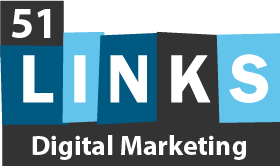Michael Pope, now a successful headhunter and recruiter, held a number of jobs. Moving from one position to the next taught him something invaluable.
It dawned on Pope that he excelled at — and even enjoyed — the interview process. In fact, he often enjoyed that process more than he enjoyed the tasks he was given after he successfully passed an interview and was hired for a position. When Pope realized he could be his own boss and help others with this skill, he knew what he wanted to pursue.
Armed with a bachelor’s of science degree in business administration from DeVry University and an MBA (Human Resources) from Claremont Graduate University, Pope began as self-employed headhunter. Although getting a business started initially posed some challenges, he loves being able to help companies find great employees and helping individuals find great jobs.
Pope also finds that his work has meant a lifetime of fascinating education. “Each time I am working to fill a job order, I need to learn about a new technology talk to people in depth,” he says.
Pope specializes in technology recruiting, but is quick to point out that all thriving industries need help finding excellent staff members. For those interested in a career in recruiting, Pope suggests a good education and an entry-level job in recruiting in order to gain experience.
He also advises job-seekers to pursue those careers and positions that genuinely interest them and allow them to grow. “I think you need to have something that drives you towards excellence,” he explains. For him, his passion to help companies and job hunters has certainly led to excellence.
Michael Pope and His Career
Tell us about your career.
I am self-employed as a headhunter. Companies hire me to help them fill empty job requirements within their organization. In the process of job hopping, I realized I was better at interviewing than I was at being a good employee. So I became a headhunter to help other people find interviews. I really like being my own boss.
What do you enjoy most about your career? What do you do dislike?
I like the freedom that comes with being self employed, and I make more money than I ever could working for someone else. As a recruiter, I enjoy the satisfaction of helping people find work. I dislike the challenges of having to manage my own business sometimes; it’s nice once in a while to have someone else tell you what to do! It’s worth it in the end, though.
What has been your greatest success? Setback?
I started this business from scratch with very little money. I should really have had more before I got going with it, but I was desperate and needed to make some cash. My biggest setback was early on. I had a sale that I really needed to go through, and it didn’t. I almost couldn’t pay my rent the next month. But it’s worked out.
What are some favorite projects you’ve completed and why?
Each time I am working to fill a job order, I need to learn about a new technology and talk to people in depth. I like to interact with people on a personal level and really try to help them. So rather than having a favorite project, I really like the general work of the job.
What are some of your personal and/or professional goals for the future?
I wish to retire by age 40. I’ve got a lot of work to do if I want to accomplish that, let me tell you! It’s possible, but it won’t be easy.
Education Information and Advice

Tell us about your education.
I have a bachelor’s degree in business from DeVry. I studied business and human resources management because I thought it might be useful. I had picked about six other majors before that and didn’t really know what I was doing but business seemed to make sense from a financial standpoint.
I went to about three different colleges before attending DeVry University to study business. I had trouble studying and being interested in my coursework, and I dropped out a few times.
After I got a job making $12/hour, I realized life would really stink if I didn’t get my act together. I’d never be happy over the long term making that little money. Try paying rent, a car payment, insurance, taxes, and eating expenses, and having enough left over to do anything on $25,000 a year. It’s just not reasonable. So I went to school.
Later I completed a Master of Business Administration (MBA) degree, which is gradually paying itself off. The most affordable approach to do an online MBA degree. Plenty of high quality online MBA programs are available these days.
How has your education benefited your career?
It absolutely has, but I could have been much smarter about things. If I could do things over again, I would live with my parents as long as possible and go to a state school instead of the expensive school which I chose to attend. I’ve got $100,000 of student loans to pay back, and it stinks! It’s very hard at a young age to hear that someone will loan you more money than you actually need to go to college. I should have only borrowed enough to pay for school and then gotten a job.
What advice do you have for college-bound students?
I think you should go to college if you know what you want to do. If you’re having trouble making up your mind, it might not be a bad idea to either experiment with different classes in community college or take a year off and work or do something else.
After high school, I joined the Army for a couple of years. It’s really expensive to go to college if you’re just delaying entering the real world. It may be tempting to borrow a ton of money and live for “free”, but the biggest education you’ll get is how expensive it is to pay that money back after you finish, especially if you drop out.
What can students do to increase their chances of being accepted to college?
Don’t be afraid to be yourself or stand out. It’s nice that you are class president, read books to blind people, and happened to be valedictorian, but so is everyone else applying to Harvard. Have the courage to inject personality into your application, and have some fun!
What other advice can you give to prospective students thinking about an education and career in this field?
In my field, you can make a lot of money working for someone, and even more working for yourself. But it’s no fun if you don’t like talking on the phone (a lot) or working your butt off to find new clients. If you don’t like it, quit and try something else, which is probably good advice for any career.
The Actual Work
What exactly do you do on a daily basis?
I make a lot of phone calls to both employers and people looking for work. I do research on the Internet and I read a lot of newspapers and magazines.
What are the most challenging aspects of your job?
There are a lot of days when I don’t make any money. Being self-employed makes you realize just how hard it is to get people to pay you to do anything.
What are the greatest stresses in the job, what causes you the most anxiety?
The greatest stress of being a headhunter is knowing that when companies aren’t hiring, I won’t get paid. There will come a recession where I need to work harder to make a living.
What tools of the trade do you use most? Are there gadgets, programs or other things which are helpful to you on a regular basis?
I use my computer and the Internet, plus a couple of software packages specific to recruiting. It is not terribly important for people in my industry to know specific software packages beyond Microsoft Office. I’d recommend brushing up on Excel, Word, and maybe PowerPoint. The rest can be learned on the job, as you figure out which programs work best for you.
What contributions do you feel your job offers to society as a whole?
Companies always have trouble finding good people, and I help them with that struggle. Good people can have trouble finding work, and I help them with that, too.
Best tip for a novice?
Take a job because you think it will be a good opportunity to learn something. You can probably learn more at a tough and difficult job than you will at an easy job. When you are challenged, it forces you to grow. Don’t worry about the money in your first year or two of working; the experience is worth more than the money at that time.
What are the hottest specialties within the field over the next decade? What are some trends currently in play in the industry?
I don’t know much about my field outside of technology recruiting, which is what I specialize in. I think that most industries need headhunters, and the specialties that are hot will be in the industries that are hiring the most at any given time.
How is the job market now in the industry? How do you think it will be in five years?
Right now the job market in Silicon Valley is excellent. I suspect that it will still be strong in 5 years, but that is really just a guess. I’m not sure how it is in other parts of the country.
What kinds of jobs are available for graduating students in this field?
You really need to find an entry level sales or recruiting position to get the experience that you need to do well in this job.
What are the best ways to get a foot in the door?
Make phone calls and knock on doors. Submitting a resume over the Internet isn’t a bad idea, but you really need to talk to someone to get the best opportunities. If someone wants to get into recruiting, find someone that does it and ask them a bunch of questions. Be interested. They just might like you and offer you a job.
Do you feel that is important for someone to be passionate about this field in order to be successful on both a personal and professional level?
I think you need to have something that drives you towards excellence. I think passion certainly helps with that. Let’s be honest, some careers aren’t that exciting. But if you don’t like being a recruiter (or any position that requires you to be proactive), it’s really not going to be easy or enjoyable for you to get the job done.
What other career advice can you offer graduates of this field?
Be nice to people, and always say thank you. When you interview with someone, make sure you know their email address and/or phone number so that you can say thank you after the interview, even if you don’t like the opportunity. Never burn those bridges.
In Closing
Is there anything else you can tell us about yourself, your career, or the profession that would be interesting or helpful to others aspiring to enter and succeed in the field?
Sales is a great way to get experience in how to make money and run a business. Sales is about listening to people and asking questions, not being pushy or intense. You can’t make someone do what they don’t want to do.
